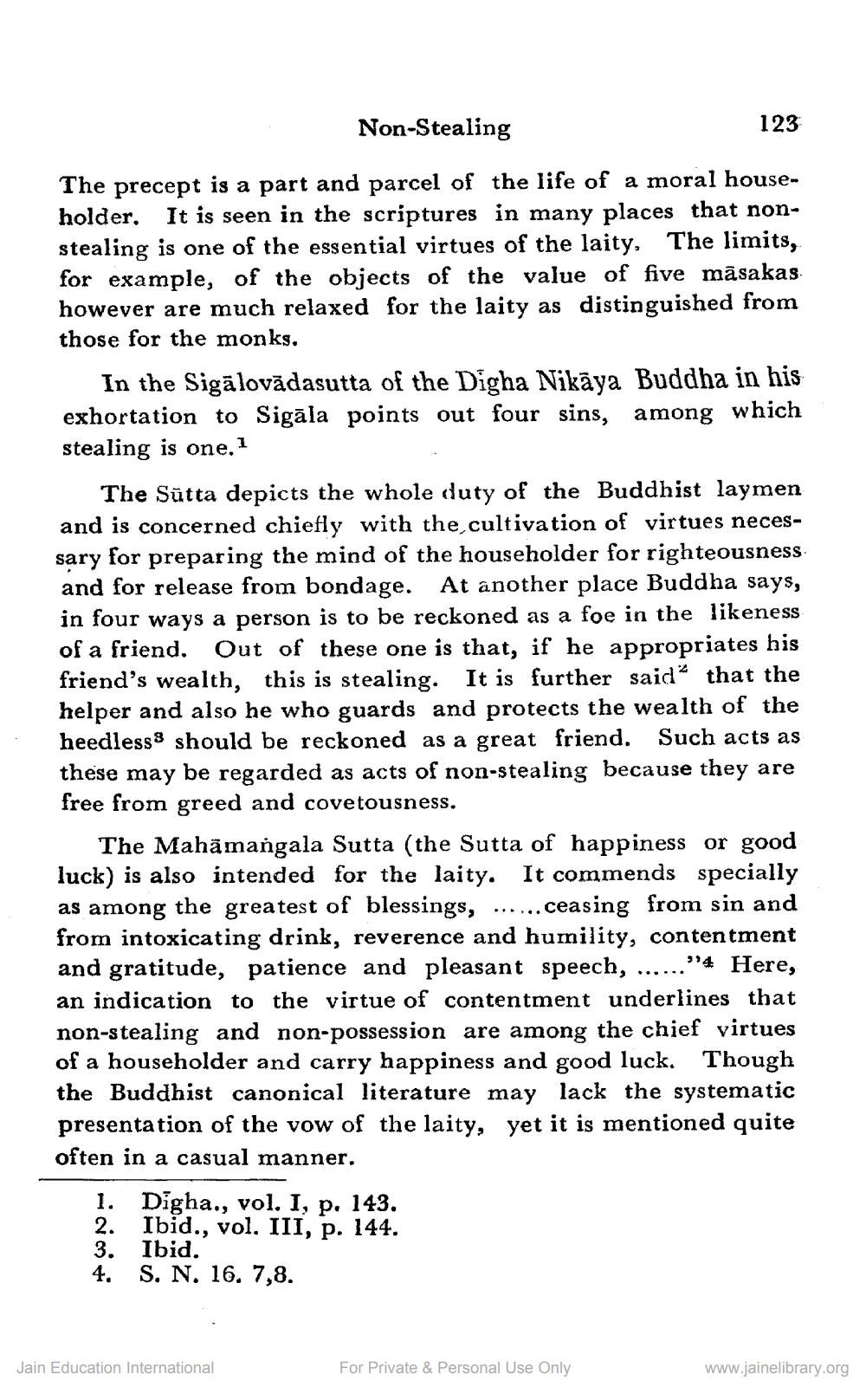________________
Non-Stealing
123
The precept is a part and parcel of the life of a moral householder. It is seen in the scriptures in many places that nonstealing is one of the essential virtues of the laity. The limits, for example, of the objects of the value of five māsakas however are much relaxed for the laity as distinguished from those for the monks.
In the Sigālovādasutta of the Digha Nikāya Buddha in his exhortation to Sigāla points out four sins, among which stealing is one. 1
The Sūtta depicts the whole duty of the Buddhist laymen and is concerned chiefly with the cultivation of virtues necessary for preparing the mind of the householder for righteousness and for release from bondage. At another place Buddha says, in four ways a person is to be reckoned as a foe in the likeness of a friend. Out of these one is that, if he appropriates his friend's wealth, this is stealing. It is further saidthat the helper and also he who guards and protects the wealth of the heedless should be reckoned as a great friend. Such acts as these may be regarded as acts of non-stealing because they are free from greed and covetousness.
The Mahāmangala Sutta (the Sutta of happiness or good luck) is also intended for the laity. It commends specially as among the greatest of blessings, ... ... ceasing from sin and from intoxicating drink, reverence and humility, contentment and gratitude, patience and pleasant speech, ...... "4 Here, an indication to the virtue of contentment underlines that non-stealing and non-possession are among the chief virtues of a householder and carry happiness and good luck. Though the Buddhist canonical literature may lack the systematic presentation of the vow of the laity, yet it is mentioned quite often in a casual manner.
1. Digha., vol. I, p. 143. 2. Ibid., vol. III, p. 144. 3. Ibid.' 4. S. N. 16. 7,8.
Jain Education International
For Private & Personal Use Only
www.jainelibrary.org




